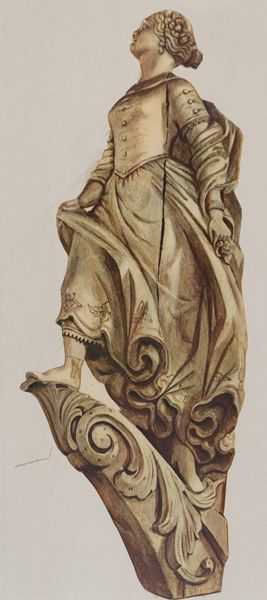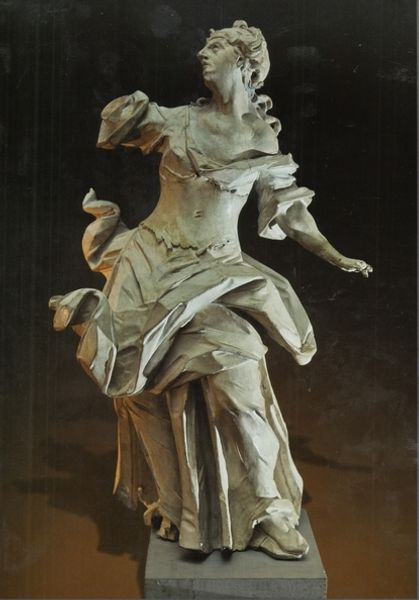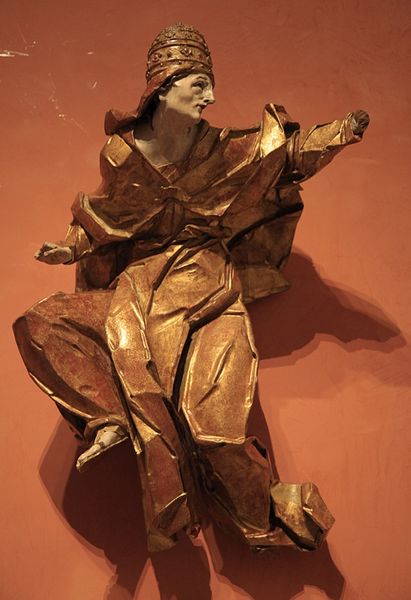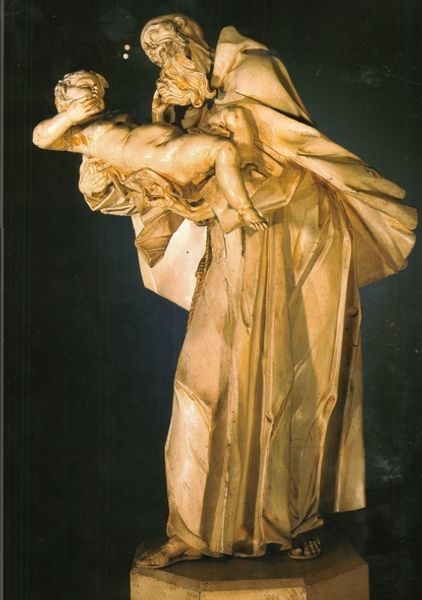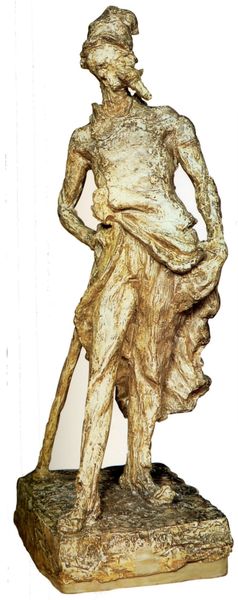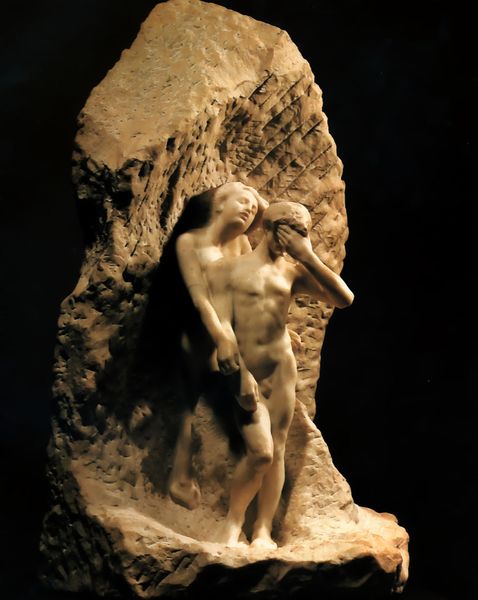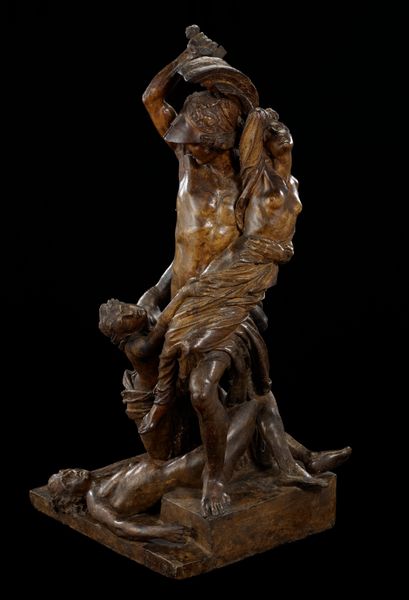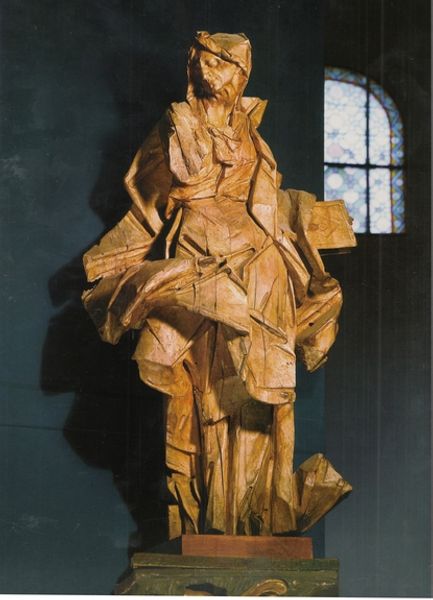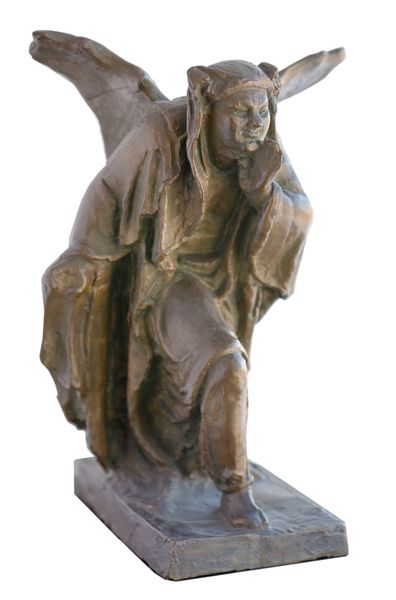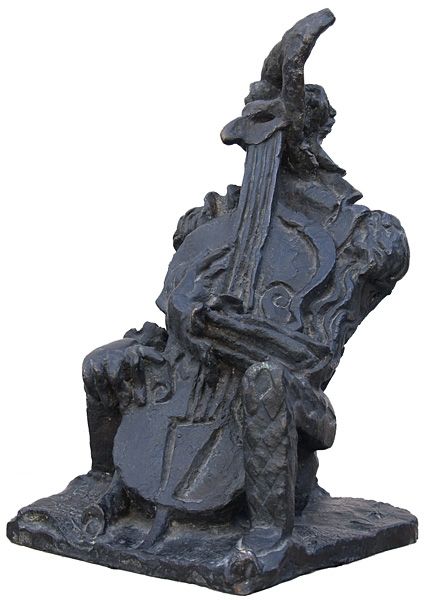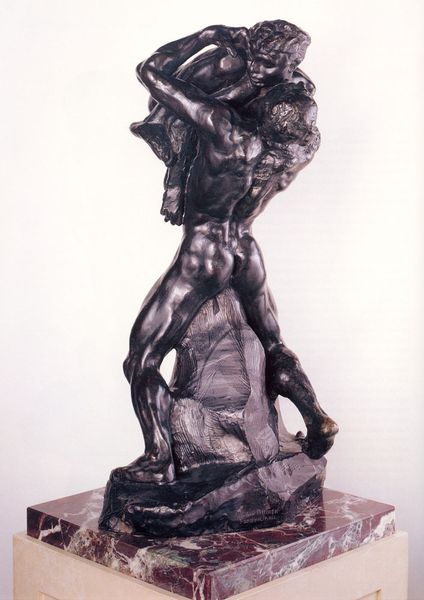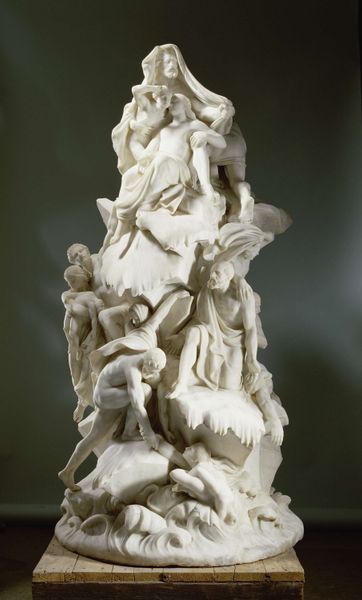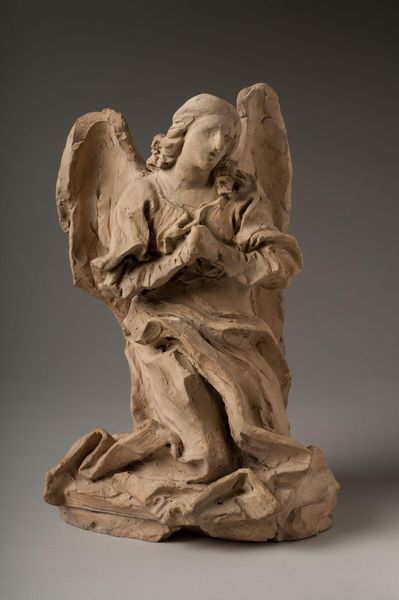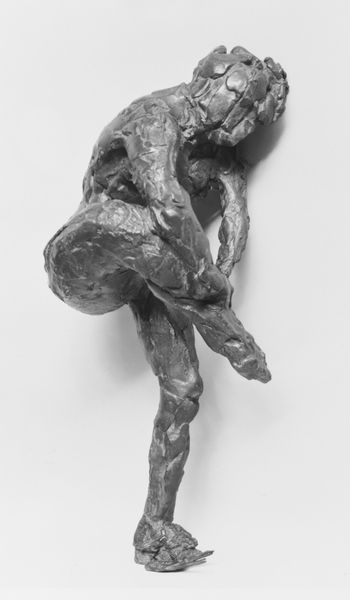
carving, sculpture
#
carving
#
baroque
#
sculpture
#
figuration
#
sculpture
Copyright: Public domain
This sculpture of St. Joachim was crafted by Johann Georg Pinzel sometime in the mid-18th century, most likely from limewood. The fluid, almost frantic quality of the drapery is typical of Pinzel. It also shows a debt to the traditions of carving in central Europe. Look closely, and you can see tool marks. Pinzel clearly wanted to emphasize the raw quality of the material from which the image was constructed. The work's material presence, with its inherent qualities of texture, weight, and form, imbues it with social and cultural significance. The very visible carving process contributes to the artwork's aesthetic impact, and invites appreciation of Pinzel's skilled labor. He was an artist who seemed to have little interest in disguising the amount of work involved in the production process. Ultimately, understanding this work requires us to appreciate the artist's process, and how it challenges distinctions between fine art and craft.
Comments
No comments
Be the first to comment and join the conversation on the ultimate creative platform.
